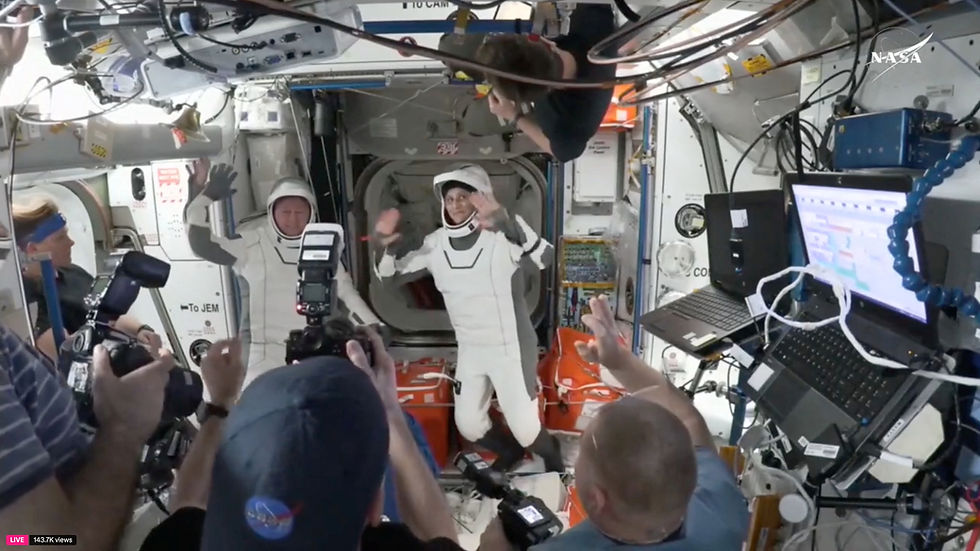Analysis-Panama presidential contenders downplay gathering economic clouds
- News Agency
- Apr 29, 2024
- 4 min read

PANAMA CITY - With Panama's business-friendly reputation bruised by a recent move to close a copper mine accounting for 5% of GDP, the country's next president will face unusually tough choices in trying to get its economy back on an even keel.
But while economists and even some politicians are urging the May 5 election's victor toward unpopular measures to boost depleted coffers - including a troubled state pension system - the five frontrunners are squarely focused on the spending side of the ledger.
"It is increasingly common in campaigns worldwide to see candidates avoid touching on fiscal issues. No one wants to talk about taxes or spending, since the electorate doesn't want to hear those messages," Citi analyst Esteban Tamayo told Reuters.
Investors holding over $33 billion in Panamanian bonds are watching the situation closely as are companies that have flocked to the country in recent years, lured by its relatively low taxes and laissez faire economic policies.
Fitch ratings recently downgraded Panama's debt to speculative grade, citing fiscal and governance pressures aggravated by the move to close First Quantum Minerals' giant copper mine following nationwide protests.
If S&P or Moody's follows suit, Panama would become a so-called fallen angel, potentially sending its borrowing costs soaring as some funds would have to unload its debt. Both agencies told Reuters they will monitor the next government's first steps and investor confidence before acting.
Panama needs to hike revenues since tax intake has only risen on average about 1.5% per year in the past decade, even as GDP growth has averaged 6% in nominal terms, said Todd Martinez, Fitch Ratings Americas sovereigns co-head.
Fitch pegs the country's 2024 fiscal deficit at 4.7% of GDP, up from 2.95% last year when it was bolstered by some one-off gains.
One seemingly easy source of $375 million in annual revenue was lost last year after the copper mine's contract was shuttered following widespread protests.
The Panama Canal's contribution to state coffers, meanwhile, is expected to fall 2.9% this year, mainly due to reduced traffic and capital reserves for future projects, according to a statement by its administration.
S&P's associate director Karla Gonzalez told Reuters the agency recently incorporated the canal's dry spell as a downside risk.
Among the five frontrunners to replace outgoing President Laurentino Cortizo, three have argued that the country can tackle its budget shortfall without hiking taxes. Another two have avoided the topic altogether.
"We are not raising Panamanians' taxes," presidential candidate Romulo Roux, ranked second in most polls, told Reuters.
Roux said he would work to lure private investment for projects that he said would create 500,000 jobs, and vowed to make tax collection more effective and cut spending in areas such as the national assembly's budget.
Ricardo Lombana, a former diplomat mounting his second presidential campaign who has swung between second and fifth in latest polls, told Reuters he would hike revenues by tackling corruption and cutting unnecessary expenses, while ruling out any tax hikes.
Many experts say candidates are failing to come clean on needed deficit-cutting measures, while acknowledging that it would be political suicide to discuss them so close to the vote.
Former economy and finance minister Frank De Lima says Panama has overlooked the sectors that used to shine prior to First Quantum's arrival, making the path to recovery tougher.
Others say the country's problems are mostly surmountable and that investors who have sold off its bonds since Fitch's downgrade may have over reacted.
The Central American country's total debt stands at $49.8 billion, amounting to over 50% of its GDP.
Former president and candidate Martin Torrijos, who holds the third place on the race according to most polls, told Reuters his administration slashed debt to 40% of GPD from 70% by managing state resources with austerity, which he plans to do again, without providing details on which expenses he would cut in his new term if elected.
As for the country's state pension fund, which is running perilously low on reserves, all five front-runners have recognized a need to salvage it. Still, none has publicly suggested raising the retirement age or mandatory contributions.
Roux and Lombana said benefit reductions and raising the retirement age were measures off the table, while Torrijos vowed for a national dialogue to decide how to salvage the system.
WHAT WOULD CANDIDATES DO?
If details are sparse on potential austerity measures, the campaigns are more forthcoming about big spending plans.
Mulino, standing in for convicted former president Ricardo Martinelli, has pledged to roll out "the biggest road rehabilitation plan in history" and build hospitals and a new train line.
He is the favorite to win the upcoming election according to most polls. His campaign did not make him available for comment.
Torrijos aims to spend $19 billion on 40 different projects including a new metro line and water reservoirs for the canal.
Others would target their spending at projects from tourism promotion to port infrastructure and prisons.
"Panama does not need a Milei walking with a chainsaw on the streets, but it does need a firm leader," former deputy economy minister Domingo Latorraca told Reuters, referring to Argentina's austerity-minded President Javier Milei.
But the next government will need to clearly explain its plans to recover from the "terrible" one-off of the mine closure move to rating agencies, bondholders and investors.
So far, there are few signs of that happening.
Source: Reuters

























.png)








Comments